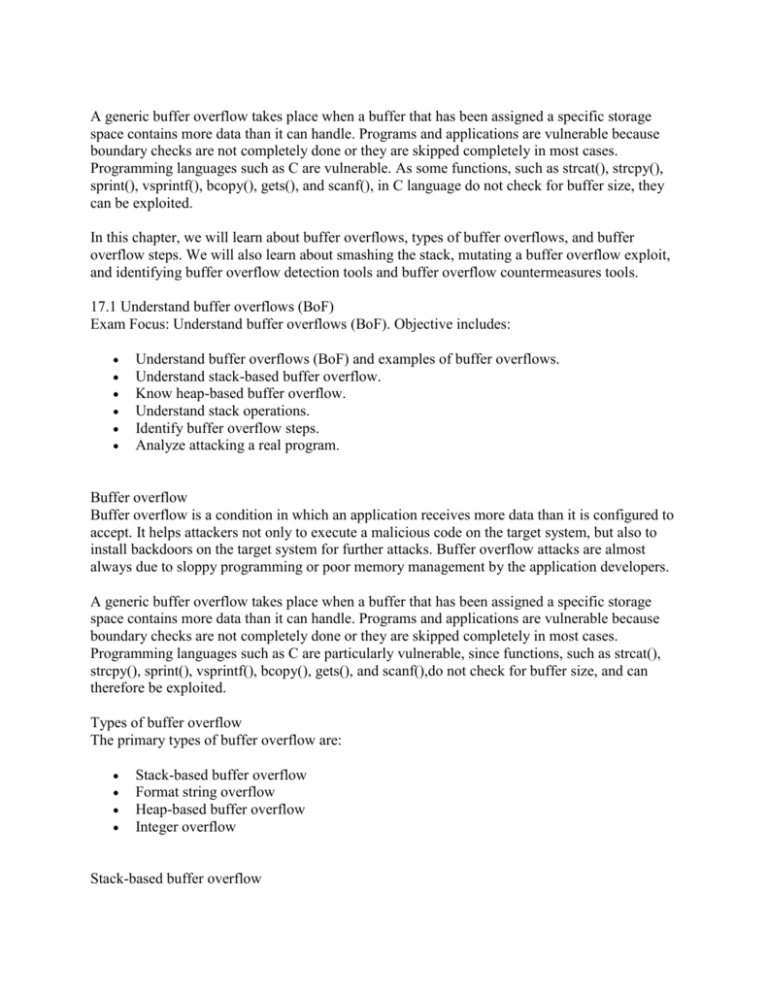

The following case is not known to be correct but is checkable at runtime:.No runtime checking is needed, and consequently the memcpy() and strcpy() functions are called. The following case is known to be correct:.When using the memcpy() and strcpy() functions, the following behaviors are possible: _FORTIFY_SOURCE=2 adds some more checking, but some conforming programs might fail.įor example, the memcpy() function may be implemented as follows when _FORTIFY_SOURCE is defined: 1 _attribute_ ((_nothrow_)) memcpy(ħ _dest, _src, _len, _builtin_object_size(_dest, 0) When _FORTIFY_SOURCE is set at optimization level 1 ( _FORTIFY_SOURCE=1) or higher, security measures that should not change the behavior of conforming programs are taken. On Red Hat Linux, for example, no protection is performed by default. Others provide a macro (such as _FORTIFY_SOURCE) to enable the feature as an option.

Many operating systems that support GCC turn on object size checking by default. Memset() fprintf() vfprintf() printf() vprintf() Memmove() strncpy() strncat() snprintf() vsnprintf() The _builtin_object_size() function is used to add lightweight buffer overflow protection to the following standard functions when _FORTIFY_SOURCE is defined: memcpy() strcpy() strcat() sprintf() vsprintf() Behavior Effects of type on _builtin_object_size() Table 2.9 summarizes how the type argument affects the behavior of _builtin_object_size(). If the second argument is 2 or 3, it returns (size_t) 0. If _builtin_object_size() cannot determine the size of the pointed-to object, it returns (size_t) -1 if the second argument is 0 or 1. (This value will be at least the sum of sizeof(int) and 10 for the buf2 array.) However, if type is 1, then the value returned is the number of bytes from var.b to the end of var.b, inclusive (that is, sizeof(int)). If ptr is passed to _builtin_object_size() with type set to 0, then the value returned is the number of bytes from var.b to the end of var, inclusive. Input Validation 1 void f(const char *arg) var

Example 2.15 is a simple function that performs input validation. Buffer overflows can be prevented by ensuring that input data does not exceed the size of the smallest buffer in which it is stored. Doing so requires developers to prevent string or memory copies from overflowing their destination buffers. The best way to mitigate buffer overflows is to prevent them. The compiler and its associated runtime system.Such strategies should be employed and then forgotten to avoid such biases.īuffer overflow mitigation strategies can be classified according to which component of the entire system provides the mitigation mechanism: There is a danger that programmers can believe they have solved the problem by using an incomplete detection and recovery strategy, giving them false confidence in vulnerable software. However, detection and recovery mitigations generally form a second line of defense in case the “outer perimeter” is compromised. Because attackers have numerous options for controlling execution after a buffer overflow occurs, detection and recovery are not as effective as prevention and should not be relied on as the only mitigation strategy. Runtime Protection Strategies Detection and Recoveryĭetection and recovery mitigation strategies generally make changes to the runtime environment to detect buffer overflows when they occur so that the application or operating system can recover from the error (or at least fail safely).


 0 kommentar(er)
0 kommentar(er)
